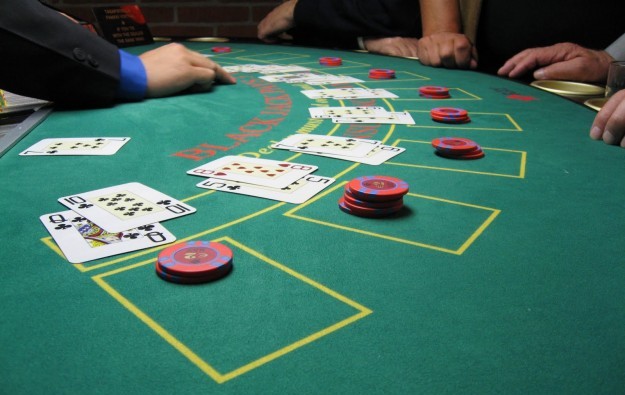Little pressure for Macau to ease gaming policy: MS
Jan 22, 2016 Newsdesk Latest News, Macau, Top of the deck

The Macau government’s surplus is likely to decline by 92 percent in 2016 but should remain “very comfortable,” meaning there is little pressure for policy easing in support of the city’s casino industry, says a research note from Morgan Stanley Asia Ltd.
“Despite the Macau government budgeting a 15 percent decline in total public revenue (13 percent decline in gaming revenue) and 92 percent decline in surplus in 2016 versus annualised 11-month 2015 amounts, we do not see an urge for the government to announce easing measures to support the gaming industry,” said Morgan Stanley Asia analysts Praveen Choudhary and Alex Poon in Wednesday’s note.
Direct taxes from gaming accounted for MOP78.54 billion (US$9.8 billion) – or nearly 77 percent of Macau government revenue – in the 11 months to November 30, the city’s Financial Services Bureau said in a statement on December 28. But the aggregate of such taxes fell 34.7 percent in year-on-year terms.
Despite the erosion of the city’s main tax base, the execution rate – for the 11 months to November 30 – on Macau’s authorised public budget for 2015 was only 70.7 percent, show data from Macau’s Financial Services Bureau.
“The government has spent 20 percent lower than budgeted expenditure every year since 2013, due to delay in infrastructure projects. If we add back 20 percent of expenditure, the surplus would be a very comfortable MOP22 billion for 2016,” added the Morgan Stanley Asia team.
Mr Choudhary and Mr Poon also said there could be an “upside” to Macau’s 2016 public revenue if the city’s 2016 GGR declines at a slower pace than the 13 percent currently projected by the government. Morgan Stanley Asia is currently estimating the GGR decline will be 6 percent.
The institution noted that the Macau government had what it termed “a strong balance sheet” with more than MOP350-billion of fiscal and foreign exchange reserves.
Macau’s gaming revenue contracted dramatically year-on-year in calendar year 2015, the city’s Gaming Inspection and Coordination Bureau confirmed on January 1. Macau’s accumulated casino gross gaming revenue (GGR) for the full year of 2015 declined by 34.3 percent compared to 2014.
Investment analysts have pointed to a number of reasons for the GGR contraction, including China’s anti-corruption campaign and macroeconomic pressures in the world’s second-largest economy, such as slowing growth and reduced liquidity in China’s real estate sector. There have also been policy initiatives announced by Macau that have been regarded by some analysts as potential headwinds for the city’s gaming industry.
The Monetary Authority of Macao announced in December it would implement a real time monitoring system for payments made via China UnionPay Co Ltd bank cards. Deutsche Bank Securities Inc said in a note the announcement could be read as a negative for the city’s gaming industry.
Related articles
-
 Economy, more visitors lead to Macau...
Economy, more visitors lead to Macau...Jul 18, 2024
-
 Macau mass-market GGR flat sequentially...
Macau mass-market GGR flat sequentially...Jul 16, 2024
More news
-
 Donaco EBITDA up y-o-y to above US$4mln...
Donaco EBITDA up y-o-y to above US$4mln...Jul 26, 2024
-
 HK listed Palasino upgrades Czech...
HK listed Palasino upgrades Czech...Jul 26, 2024
Latest News
Jul 26, 2024
Border-casino operator Donaco International Ltd has achieved a 164.17-percent year-on-year increase in its latest quarterly group earnings before interest, taxation, depreciation and amortisation...Sign up to our FREE Newsletter
 (Click here for more)
(Click here for more)
Pick of the Day
”We’ve got more traction outside of Macau at the moment. But Macau’s going be a bigger focus for us”
David Punter
Regional representative at Konami Australia
Most Popular
 Sheraton brand to exit Londoner Macao, to be Londoner Grand July 25, 2024
Sheraton brand to exit Londoner Macao, to be Londoner Grand July 25, 2024  Macau regulator probes unlicensed gaming agents July 24, 2024
Macau regulator probes unlicensed gaming agents July 24, 2024  Philippines gives 20k aliens in POGOs 60 days to leave July 25, 2024
Philippines gives 20k aliens in POGOs 60 days to leave July 25, 2024  Philippines-listed DigiPlus says not affected by POGO ban July 24, 2024
Philippines-listed DigiPlus says not affected by POGO ban July 24, 2024  Sands China 2Q EBITDA down q-o-q amid low hold, renovation July 25, 2024
Sands China 2Q EBITDA down q-o-q amid low hold, renovation July 25, 2024






